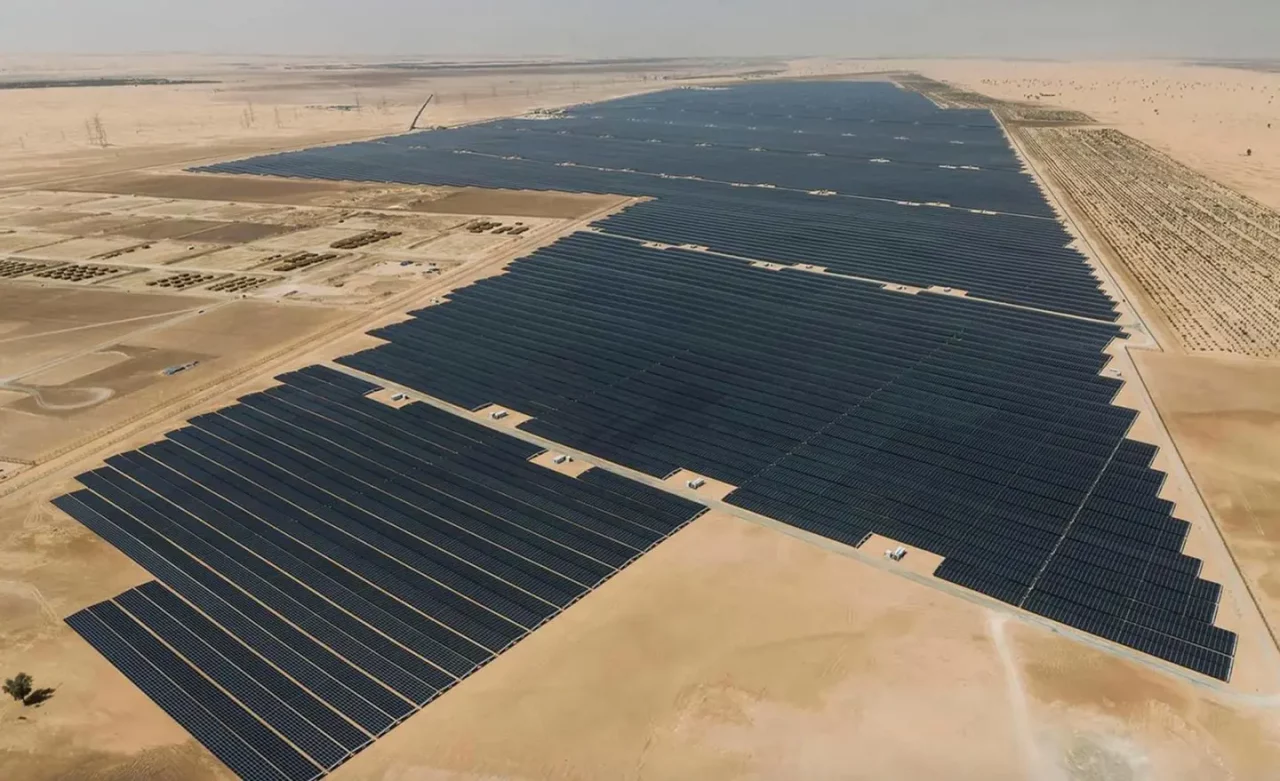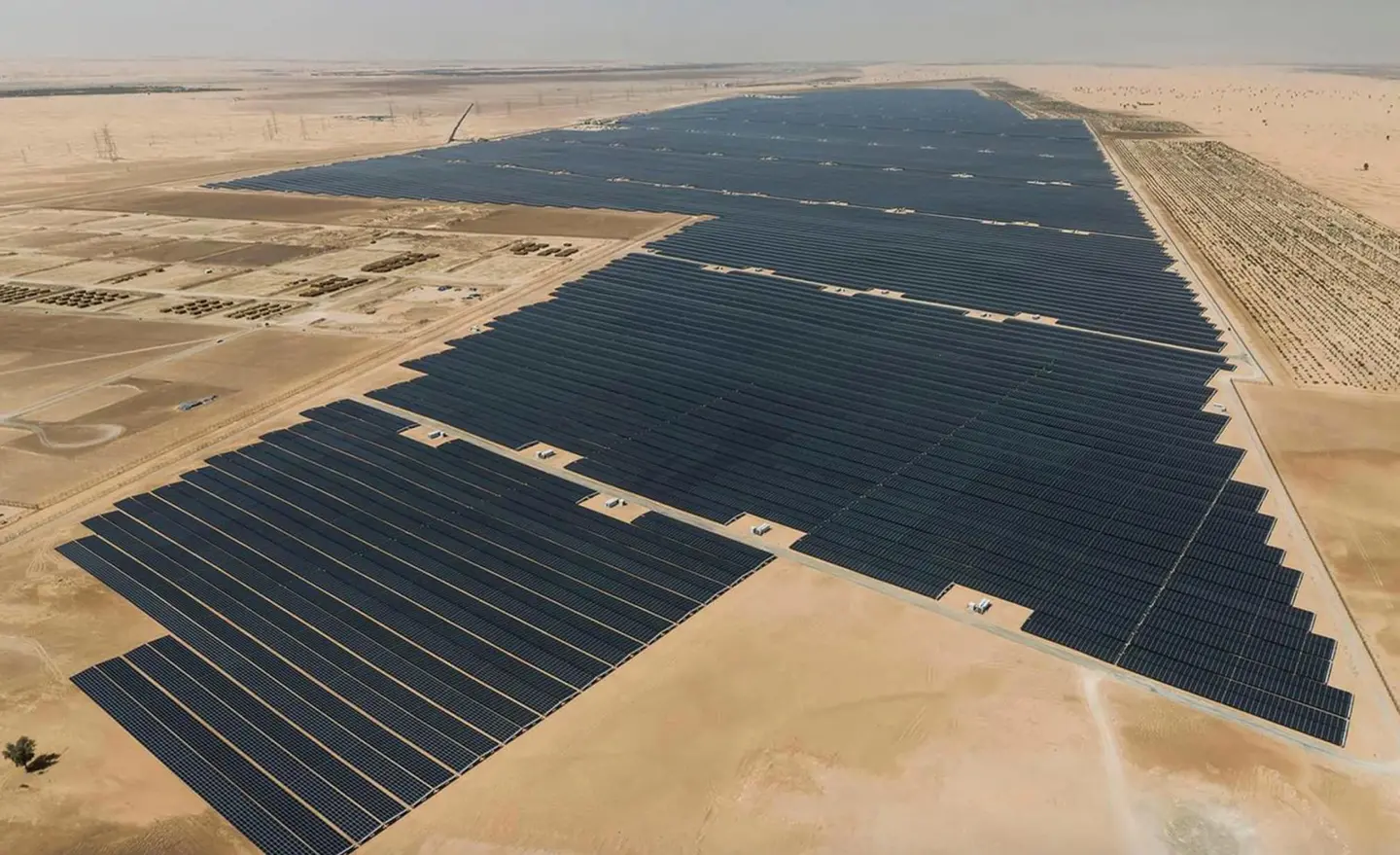In November 2021, Israel, Jordan and the United Arab Emirates came together to sign a historic solar energy and water agreement.
With the support of the United States, this UAE-brokered deal marked the largest cooperation agreement ever signed between Jordan and Israel in history. If executed, it will help all three countries contribute to regional peace and the global fight against climate change.
The official signing ceremony was held at the UAE Leadership Pavilion at Expo 2020 Dubai. Here, ministers from all three countries came together to sign a declaration of intent focused on renewable energy, water desalination and the growing climate crisis.

The global event drew world leaders including Abu Dhabi Crown Prince Mohammed bin Zayed; Israel’s Minister of Energy Karin Elharrar; UAE Minister of Climate Change Mariam AlMheiri; Jordan’s Minister of Water and Irrigation Mohammed Al Najjar; UAE Development Bank Chairman Sultan Ahmed Al Jaber and US Climate Envoy John Kerry.
Under the new deal, the UAE’s biggest renewable energy firm, Masdar, will build a solar power plant in Jordan by 2026. The plant is expected to produce 600 megawatts of solar energy for Israel, with proceeds being split between the UAE and Jordan. In exchange, Israel will send 200 million cubic meters of desalinated water to Jordan, one of the world’s most water-deficient countries today.
In celebration of this breakthrough, Israel’s Minister Karine Elharrar said the agreement was the “most significant” since Israel and Jordan made peace back in 1994.
She continued, “Two countries with different needs, different capabilities, with each helping the other meet their challenges in a cleaner, greener, and more efficient manner. Jordan has an abundance of territory and sunshine which is perfect for solar panel fields, good for energy solutions and storage, and Israel has desalination plants that can help Jordan with its water scarcity.”
Speaking on behalf of the UAE, Dr Sultan Al Jaber added “Today’s achievement is a powerful demonstration of how progressive climate action can not only enhance resource security, but also serve to build bridges between peoples and reinforce regional stability. The UAE is pleased to contribute to an initiative that will help Israel achieve its clean energy targets, while improving Jordan’s access to clean drinking water. This is the kind of inclusive climate action that combines good policy, creative thinking and the spirit of true partnership to achieve practical results far beyond the immediate region.”
The water-for-energy deal was largely made possible through the signing of the Abraham Accords back in 2020. Just months later, EcoPeace Middle East released a groundbreaking proposal known as “Green Blue Deal for the Middle East.”
This report outlined the vast potential of a desalinated water-energy community between Israel, Jordan and Palestine. It was based on of the following principles:
- Jordanian/Palestinian/Israeli cooperation to improve adaptive capacities on water and renewable energy security by creating a water and renewable energy exchange.
- Advancing Israeli/Palestinian natural water reallocations and water management.
- Rehabilitating the Jordan River and its once rich biodiversity through investments in region-wide climate-smart initiatives and creation of green jobs.
- Promoting public awareness and education programs—particularly directed toward youth—on resilience diplomacy in the water and climate fields as a means of conflict resolution and peace building.
The new water-for-energy agreement is expected to be finalized in the coming year. It represents a major step forward in Arab-Israeli cooperation, one that will go down in history as a meaningful achievement in resource management and peacebuilding across the Middle East.
